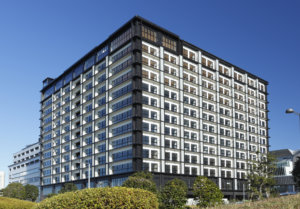How difficult is the Japanese Language Proficiency Test N1?: Level of Japanese required to be hired in Japan
CONTENTS
How difficult is the Japanese Language Proficiency Test N1?: Level of Japanese required to be hired in Japan
| Japanese Language Proficiency Test | Nihongo Kentei | |
| Who is the examinee? | Non-native speakers of Japanese | Anyone who uses Japanese |
| Contents of the examination | Language knowledge (Characters, vocabulary and grammar), reading and listening comprehension | Kanji, notation, honorific language, meaning of words, vocabulary and grammar |
How difficult is the Japanese Language Proficiency Test N1?: Level of Japanese required to be hired in Japan
The Japanese Language Proficiency Test was started in 1984 as an examination to certify Japanese language proficiency for those whose mother tongue is not Japanese. It is sponsored by the Japan Foundation and the Japan Educational Exchanges and Services. The number of applicants has now exceeded 1.36 million (2019), making it the world's largest Japanese language examination.
Test schedule and venue
The examination is held twice a year in July and December. There are 249 test sites in 85 countries around the world, some of which are held only in July or December.
About the Japanese Language Proficiency Test N1

N1 is the most difficult level of the Japanese Language Proficiency Test, and even for Japanese whose native language is Japanese, it is difficult to answer all questions correctly.
Contents of the test
The test consists of three components: linguistic knowledge (words, vocabulary and grammar), reading comprehension, and listening comprehension. The total test time is 170 minutes, which is 110 minutes for language knowledge and reading and 60 minutes for listening. Because it is a mark sheet test, there is no examination that directly measures the ability to speak or write.
Passing rate
According to the latest data from July 2019, N1 has a passing rate of 29.3%, the lowest among N1 to N5.
Japanese language level required to acquire a status of residence
The level of Japanese required differs depending on the status of residence. In general, the more advanced your job type and content, the higher your Japanese level will be.
Technical Intern Training and Specified Skill (1st)
If you are visiting Japan for the first time under the Technical Intern Training Program, you will need to obtain a Technical Intern Training 1 visa. You don't need to take exams such as the Japanese Language Proficiency Test. You will have a chance to learn Japanese well at a sending off agency through a pre-N4 class before you enter the country and a post-entry class.
On the other hand, the required level of Japanese is fixed for the status of residence of Special Skills 1. The Japanese Language Proficiency Test is N4 or higher, or the Japan Foundation Japanese Language Basic Test A2 or higher. If you don't pass these, you won't be able to get a status of residence, so you need to be careful. However, those who have successfully completed Technical Intern Training (2nd) will be exempted.
Engineer/Specialist in Humanities/International Services
The status of residence often used by foreign students after graduation is a visa for "Engineer/Specialist in Humanities/International Services". There are no requirements for Japanese language skill to obtain a status of residence. However, in the case of applying for a certificate of eligibility, it is said that N2 or more is necessary.
If you have graduated from a vocational school or a university in Japan, it is possible to obtain the status of residence of "Engineer/Specialist in Humanities/International Services" even if you do not have the certificate of the Japanese Language Proficiency Test.
Designated Activities (For Graduates of Japanese Universities)
With the aim of increasing the employment rate of international students, which is currently in a slump, and expanding employment opportunities, a new status of residence has been created which is called “Designated Activities 13 (It's also called "Designated Activities 46 Visa").” You can apply for that visa if you have a "high Japanese language ability". Since it is possible to work as a regular (full-time) employee, it is attracting attention from many foreign students.
In the Special Activity 13, students not only graduate from universities in Japan, but also are required to have a high level of Japanese. You need to score at least 480 on the Japanese Language Proficiency Test N1 or BJT Business Japanese Language Proficiency Test. It is said that the difficulty level of BJT over 480 is between N2 and N1.
Level of Japanese required to be hired in Japan as a foreigner

Then, what is the standard level of Japanese required to be hired? The Japanese Language Proficiency Test consists of three elements: linguistic knowledge, reading comprehension, and listening comprehension, but in many cases, what is required in business is other than the examination subjects, such as conversational ability and writing ability.
The level of Japanese that should be checked depends on the type of job
For example, let's compare a concierge job at a hotel with a public relations job at a company. Concierge service is focused mainly on the conversation with customers, and it is important to have comprehensive conversation skills such as the use of honorifics and non-verbal communication.
On the other hand, in the case of public relations and advertising, not only communication within the company, but also communication skills such as press releases to external parties, as well as the ability to create documents, are important.
Looking at the job information for foreigners, it is obvious that they are looking for N2 or more. Therefore, it seems that there are many foreigners who aim to pass N2. However, even if you don't have a Japanese Language Proficiency Test certificate, there are some foreign students who can speak perfect Japanese through studying in Japan or working part-time.
The minimum requirement is to meet the level of Japanese required by the status of residence for a proper visa, but there are things that cannot be measured by the Japanese Language Proficiency Test, so it is very important for actual job interview for both employers and prospective non-Japanese employees.
Summary
This article introduces the contents and difficulty of the Japanese Language Proficiency Test N1, the level of Japanese required for a status of residence, and the brief Japanese language ability required for hiring foreigners. The Japanese Language Proficiency Test is very familiar to foreigners who stay in Japan, but there must be many people who didn't know it.
If you want to know the details, please visit the website of the Japanese Language Proficiency Test.
- Categories
- Work in Japan: Japan Biz Cultural Words and 未分類


